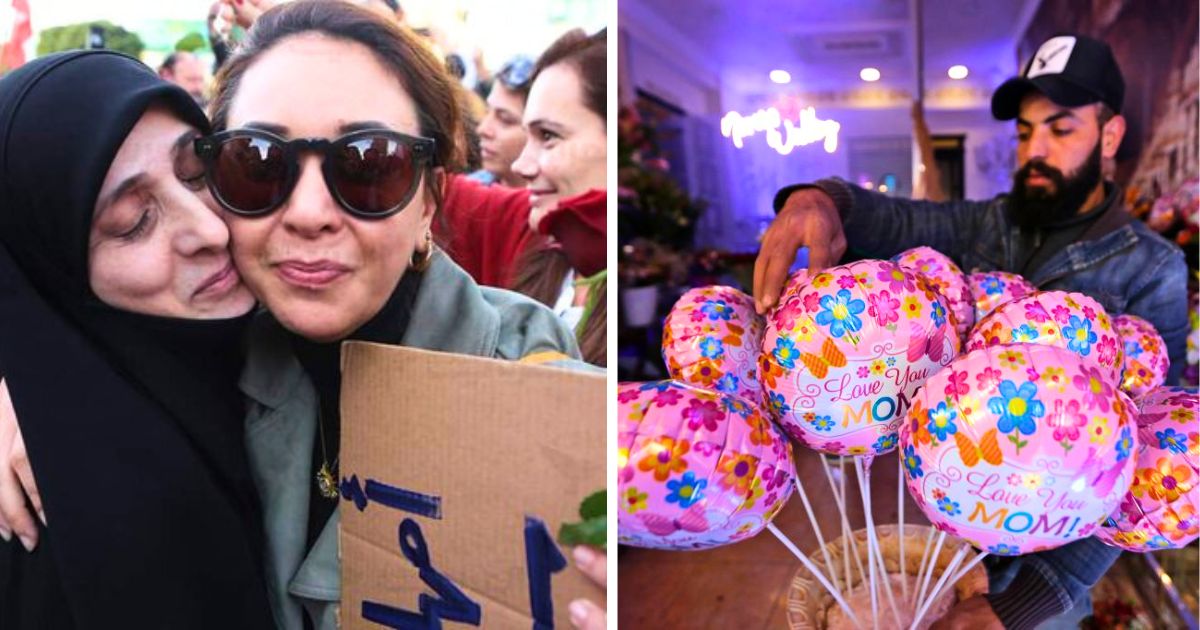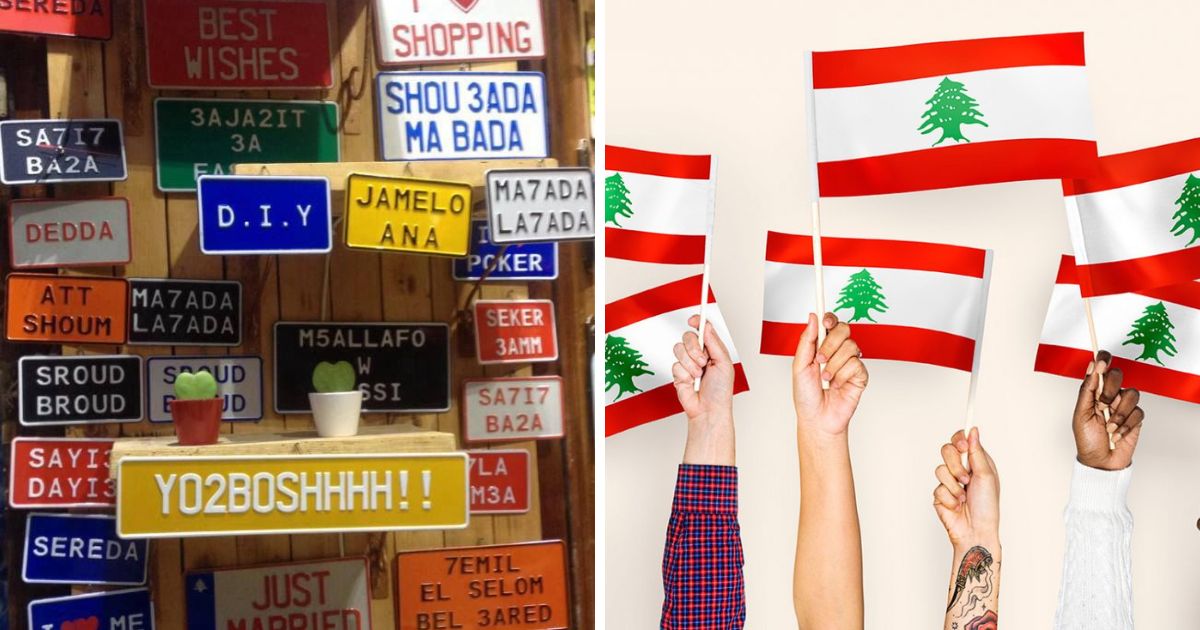Every country in the world has its quirky traditions and Lebanon is no different. Our country’s old social habits have been passed down from one generation to the other for a long time.
With the openness and rapid modernization that came with the dawn of the 21st century, some of these traditions have been losing their place with the new generations.
But regardless of whether or not old customs are compatible with today’s world, they must always be remembered and cherished. Some of them we laugh at, others make us scratch our heads in bewilderment.
Here are 10+ of the oldest, funniest, and most confusing Lebanese traditions.
#1 The Value of the Cup
When you’re a guest in a Lebanese house, especially in the village, you’re supposed to leave a thin layer of the drink you were offered by the host (commonly tea or coffee), as per Lebanese traditions.
It is commonly referred to as Imet el kibbeye, or the “value of the cup,” and serves to show those around you what it is you were drinking exactly… For some reason. Today, it’s more common with the older Lebanese folks than the younger generations.
#2 Flipping the shoe

When you spot on the ground a shoe/sandal/boot – or any footwear for that matter – with its sole pointed upwards, you are to flip it. No whats or whys; you flip it.
Countless times I’ve seen a Lebanese grownup deliberately stand up from their comfortable seat, walk several meters with a focused gaze and flip that upside down slipper they detected at the end of the hallway, using the specialized upside-down-shoe-finder vision, which every Lebanese acquires during childhood.
You’ve done it, I’ve done it; every Lebanese has done it at some point during their life. This tradition originally comes from the religious idea that it’s improper to leave the sole of a shoe pointed at heaven.
#3 Having to know every single person in your village
I have never been a resident of my Lebanese village. Because it’s far away from where I live, I mostly go there with my family on holiday to visit relatives and spend the day with them. That, I mostly enjoy.
What I do not enjoy is when my father’s grandfather’s aunt’s neighbor’s family, whom I have never met in my life, but who know my relatives, decide to drop by their house while I’m there.
And I’m supposed to know who they are and how they know me -no questions asked- while pretending to be super interested in their personal conversations or I’ll come off as rude. Just because I’m from town doesn’t mean I know everyone who lives there…
#4 Bringing food and treats when you visit someone; every time
Because we are traditionally a very generous people, we have this unwritten social rule that says we must have sweets, fruits, and/or takeaway food in hand when we knock on the door of a relative or acquaintance.
But if you’re a generally casual (or broke) person, you just want to see your loved ones without having to go around buying stuff every time you decide to visit. So you sometimes end up not visiting them at all; take that social norms!
Jokes aside, this tradition is of course not an obligation, but a gesture of kindness and love exercised by the Lebanese.
#5 Knocking on wood
When you proudly mention something good that has happened in your life, or someone else’s life; buying a new car, starting up a new business, or even complimenting the traits of a loved one, you find the nearest wooden object and knock on it like you would on a door.
Why? To prevent something bad from happening to the aforementioned good thing; to drive away bad luck. It is a very old tradition that has not died off and is still practiced by many Lebanese of all age groups today.
#6 Having to offer diyefe to guests; every time
On the other hand, if you’re the host and don’t offer diyefe (treats) for your guests to eat or drink, you might come off as disrespectful and rude.
That is because the Lebanese are famous for their hospitability, and not practicing that when people visit you might give them the impression that you dislike them. The traditional cup of tea/coffee would do just fine.
#7 Exchange three kisses with every person in the room
It doesn’t matter if there are 5 or 50 individuals in that room. If you’re going in, you have to say hi, up close, to each and every one of them.
You know the drill; you walk up to the first person, shake their hand, three kisses on the cheeks; left-right-left, and you move on to the next person.
Such is the class of the Lebanese.
#8 Can’t cross legs next to someone
Older Lebanese people usually take great offense when the person sitting next to them crosses their legs in a way that has that person’s foot pointed in their direction.
This gesture, although not deemed as offensive in today’s standards, is considered rude and disrespectful in traditional Lebanese norms, because it exposes the sole of the shoe to the other person, which is frowned upon in traditional social settings.
#9 It’s on the house!
Saying Khalliha Alayna to a customer is still quite common in local Lebanese stores nowadays, especially small ones in villages.
It basically means “it’s on the house,” but is generally said as a compliment/formality and not seriously meant.
It’s mostly used by storekeepers as a friendly, informal gesture to make their customers feel appreciated.
As a customer getting this answer when you ask how much your bill is, you’re expected to insist and repeat the question until you are informed of what you owe.
#10 Using phrases of endearment in the most heated arguments
This one is all too familiar for anyone living in Lebanon. When two Lebanese people argue, they can usually be heard angrily yelling ya habibi (my dear), ya albi (my heart), and ya aaynayi (my eyes), which are obviously compassionate and lovely phrases.
It’s surely confusing and even we don’t know why we do it; it comes naturally to us. It’s probably a subconscious de-escalation maneuver exclusively wired in Lebanese brains?
#11 The dough on the wall
Less common today, this marriage tradition involves handing the bride a piece of fresh dough and having her stick it on the above or beside the main entrance of the house.
The dough is supposed to stick to the wall as a prediction of a successful marriage; if the dough doesn’t stick, it is traditionally considered bad omen and a sign that the marriage would not last long.
#12 Breaking the evil
When someone is drinking coffee from the traditional Arabic coffee cup, and the cup accidentally falls on the ground without breaking, the person is supposed to lift the cup and throw it back on the ground to “break the evil” that allegedly resides inside the “unbreakable” cup.
Although again, not very common among the rising youth, many Lebanese elders still believe in and practice this strange tradition today.
#13 Stay! (But actually leave)
In Lebanon, when guests decide it’s time to leave, they stand up and imply their intent to do so. Traditionally, the host(s) should, in turn, stand up and insist (beg) that the guests stay a little longer.
The host is supposed to shower the guest with phrases such as “we haven’t sat yet,” (even though they might have been sitting for hours straight) and “we’re delighted you’re here” even if they don’t really want them to stay any longer.
This custom is still in practice in many Lebanese houses today and is seen as a show of proper hospitality.
Leaving already? You haven’t read anything yet!

















